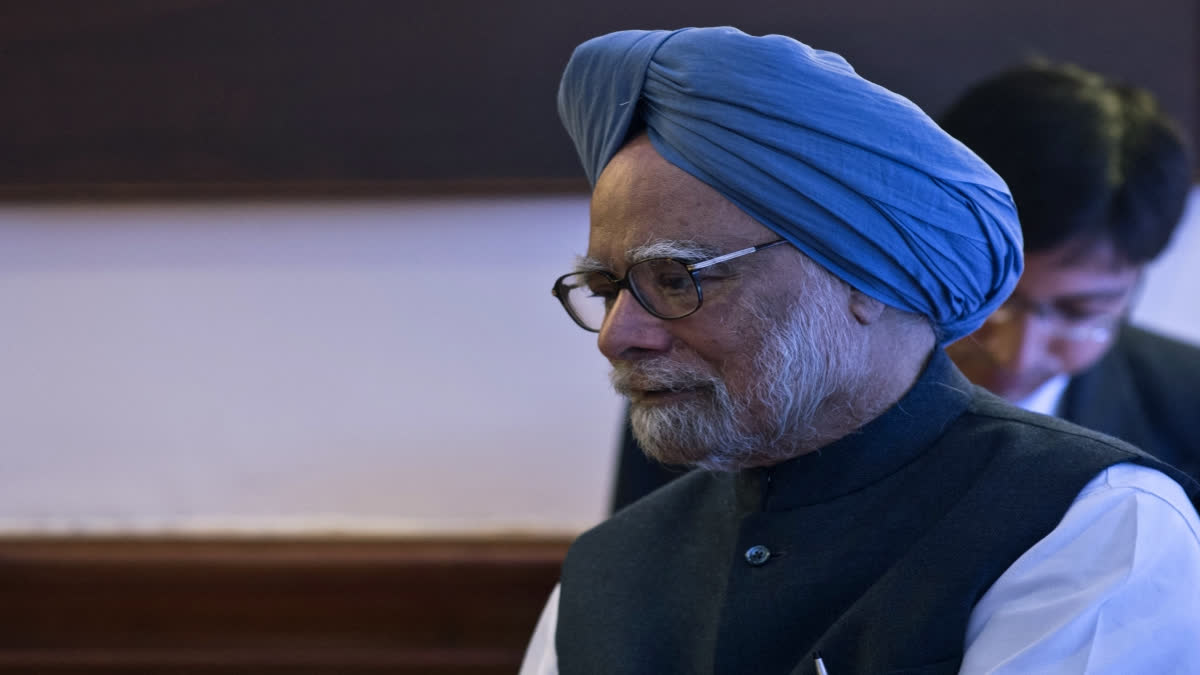New Delhi: On July 24, 1991, when Dr Manmohan Singh rose to present his first Union Budget, the country was passing through a period of political and economic instability. Two previous governments led by Vishwanath Pratap Singh and his successor Chandra Shekhar collapsed in just one and a half years necessitating a mid-term national election. The election of 1991 saw the brutal killing of former Prime Minister Rajiv Gandhi by the LTTE and returned the Congress to power at the Centre.
It was an uncertain time for the country both politically and economically. At the beginning of the speech, Dr Singh elaborated on the precarious situation of the country’s economy, saying that due to the combined impact of political instability after the term of Rajiv Gandhi’s government, there was a great weakening of international confidence in the country’s economy due to fiscal imbalances and the Gulf crisis.
“There has been a sharp decline in capital inflows through commercial borrowing and non-resident deposits. As a result, despite large borrowings from the International Monetary Fund in July 1990 and January 1991, there was a sharp reduction in our foreign exchange reserves,” noted Dr Singh.
“The balance of payments situation is the most difficult… The current level of foreign exchange reserves, in the range of Rs.2500 crores, would suffice to finance imports for a mere fortnight,” he told the members of the 10th Lok Sabha.
In a blunt manner, he told the members, “There is no time to lose. Neither the Government nor the economy can live beyond its means year after year. The room for maneuver, to live on borrowed money or time, does not exist any more.” “We must act fast and act boldly,” Dr Singh told the lawmakers.
Dr Singh said the time had come to expose Indian industry to competition from abroad in a phased manner and as a first step in that direction introduced changes in the country’s import-export policy, aimed at a reduction of import licensing. As the newly inducted finance minister, Dr Singh had already made two forex exchange rate adjustments within a fortnight of assuming office.
The economic liberalization measures announced by Dr Singh on July 24, 1991, are known as the ending of the Licence, Permit and Quota Raj in the country. Not only did he end the Licence-Permit Raj but Dr Singh also opened the country for foreign direct investment (FDI).
He said after four decades of planned industrialization there was no need to fear foreign direct investment and he liberalised FDI investment up to 51 per cent in high-priority areas with prompt approval.
As a third step, he decided to dilute the government equity in the public sector companies (CPSEs) and offered up to 20 per cent government equity to mutual funds and public investment institutions. This began the era of disinvestment more than forty-three years ago. He also announced the enactment of a law to give statutory status to the stock market regulator SEBI for effective regulation of the capital markets.
How did Dr Manmohan Singh convince naysayers?
At the time Dr Manmohan Singh presented his first Union Budget in July 1991, there was an intense debate in the government and the country about his proposed economic model. Dr Singh was aware of this shrill debate about his economic ideas and acknowledged in his speech. He said India stood at the crossroads as it entered the last decade of the 20th century.
“The decisions we take and do not take, at this juncture, will determine the shape of things to come for quite some time,” noted Dr Singh, adding that is why there was an intense debate in the country about the proposed economic policies and in a democratic society we should learn from it.
Wealth Creation important for removing poverty: Dr Singh
As a noted economist and former governor of the Reserve Bank of India, Dr Singh was aware of the different economic models followed by other countries such as the USSR and its limitations and the capitalist model followed by Western countries such as the USA and Eurozone countries.
He was also aware that India’s first Prime Minister Jawaharlal Nehru chose to follow a mixed economic path where both private and public sectors would coexist with the primacy of planned central planning for the public sector.
“We must restore to the creation of wealth its proper place in the development process. For, without it, we cannot remove the stigma of abject poverty,” Dr Singh had said adding that his purpose was not to give a fillip to mindless and heartless consumerism borrowed from Western societies but to follow the path shown by Mahatma Gandhi required wealth creators to hold the wealth in the capacity of a trustee for the benefit of the society.
He said his objection to the consumerist phenomenon was two-fold as the country cannot afford it as it lacked basics such as drinking water, education and health therefore in such a situation meeting the consumerist urges of a wealthy minority was not the right approach. He instead suggested a combination of efficiency and austerity to achieve the goal of eradicating poverty in the country.



